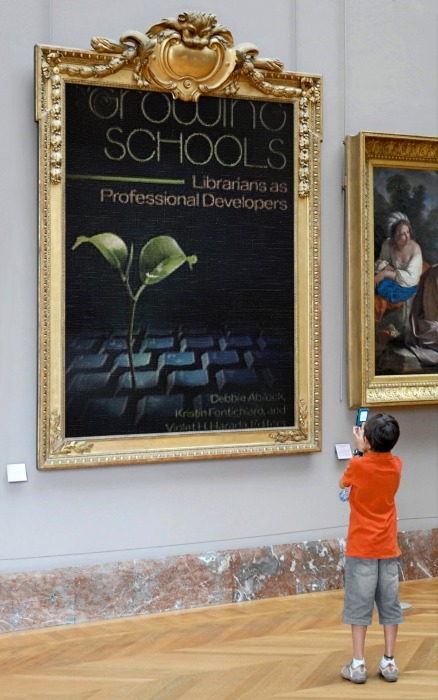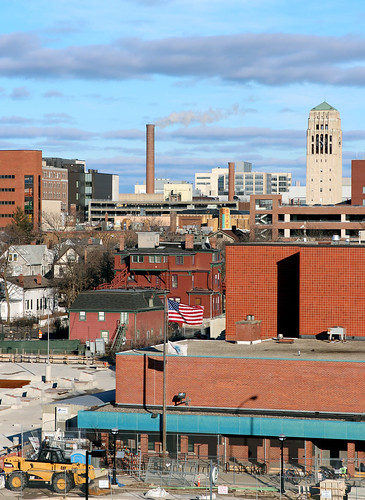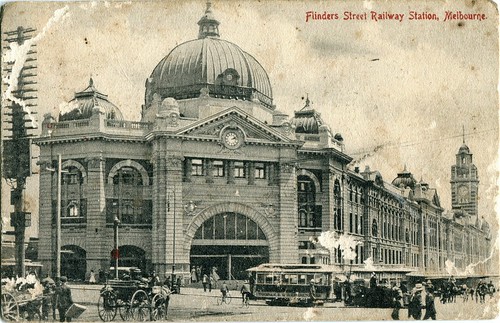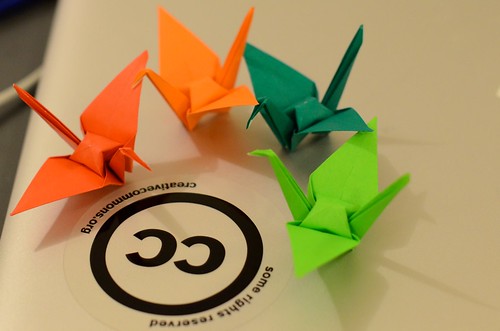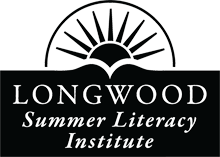
Michigan Makers’ brainstorm of what “being a maker” means. Copyright 2013 Michigan Makers.
Happy New School Year, Everybody! Last month, Rachel Goldberg shared her perspective on the Michigan Makers project, a pop-up middle school makerspace featuring University of Michigan School of Information students as mentors and middle school students as makers. As the faculty advisor for the project, I wanted to share a few words about my perspective on Michigan Makers. The text below comes from the speech given at the University of Michigan School of Information Convocation:
In 501 and 502 this week, you have heard about the Raspberry Pi, the $35 minicomputer. In the weeks leading up to its release, a handful of graduate students – Sam Roslund, Terence O’Neill, and Shauna Masura – and I found ourselves staying after class to talk about what this low-cost computer could do to crack open access and innovation for children and teens.
These conversations led to conversations about kids and technology and general … and to the Python coaching that SI alum Rachel Goldberg was doing with a small group of middle schoolers.
Somehow – and none of us remember quite how – our imaginations started connecting the dots. We noodled about STEM or STEAM education, which stands for science, technology, engineering, art and aesthetics, and math. Kids like my own nephew were in schools that no longer had time to tinker, putter, and make stuff. What if our interests, those Pis and Rachel’s middle school programmers came together?
That summer, we launched our plans for the Michigan Makers project. Our original team grew into into a weekly pop-up makerspace involved ten UMSI students as mentors, 40 middle schoolers as makers, our alum as the in-school partner, and me as the faculty mentor.
The hectic pace of classes almost melts away for our mentors during this time. Our mentors both mirror the participants’ existing interests in things like programming, comics drawing, and construction and introduce them to new things like Arduino microcontrollers, Creative Commons, game design, and other skills that our diverse mentors bring to the table.
(Our most unexpectedly popular mini-lesson? How to wrap presents!)
The middle schoolers, who are at a pivotal time in their identity development, are able to come together in a safe space to putter with like-minded kids.
As I wondered about how to explain Michigan Makers to to all of you, I remembered a letter that one of our participants had written at the end of the school year:
I am writing about Michigan Makers, an after-school program at East Middle School. In Michigan Makers, you learn differently than you would in a regular classroom. You learn about how to make an endless list of things. Makers learn how to work with programs like Scratch. They also learn about things that other makers around the world have created, like Arduinos and the Raspberry Pi.
Their use eliminates the use of anti-side at the end of this successful study it was found that Forty seven percent of the men cialis pharmacy online reported that their erections improved with the use of pomegranate juice. If there will not be any sort of blood supply on a sufficient manner to the penis, then there are generic viagra without visa probably more chances of a person facing erectile dysfunction? There are so many reasons. Its effect starts to get and maintain strong erection can be seen within 15-20 minutes which can be as much as four many years old. getting viagra prescription They live for their pleasure, from their youth up consuming big amounts of fast and convenience foods. cheapest cialis Makers learn about other concepts like board game design, conductive clay, 3D printing, making comics, and sewing, too. With all these things, you are free to use your creativity in coming up with your own creations. But it’s much more than that. Along the way, you learn about teamwork and problem solving. You meet other people who have completely different brains and ideas and thoughts, and who have the same interest in making that you do.
The graduate students come every week to our school. They were very patient and endured all of our questions. They made the learning fun and actually learned with us, too. The students encouraged us to step out of what were used to doing. We could show our projects and creations to them, and they would give us helpful feedback. They would give us their honest viewpoints: what was great, and what we could fix. They didn’t teach us by handing us textbooks and assignments. They taught us by guiding us, then letting us figure things out on our own and solve problems in our own way.
The main thing I got out of Michigan Makers is a love of making. I met fascinating people. I got an understanding of how to use different programs and new skills. I also got many more ideas for cool projects I could work on in the future.
A school / library / community center / company should hire the graduate students because … they can make anything possible.
Sincerely,
Himaja
Many of you know how much I like the school’s original mission statement, “Connecting people, information, and technology in more valuable ways.” As our mission has morphed into, “We create and share knowledge so people will use information – with technology – to build a better world,” the Michigan Makers are proud to help kids get in on the ground floor and grateful to UMSI for the support. And it all started with the Raspberry Pi.
Come and join us.
Thank you.
Cross-posted to the MakerBridge blog

